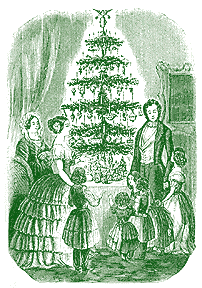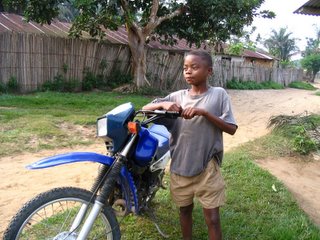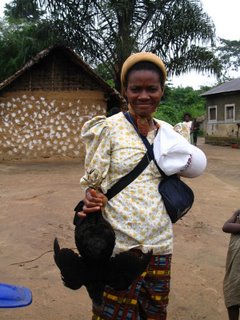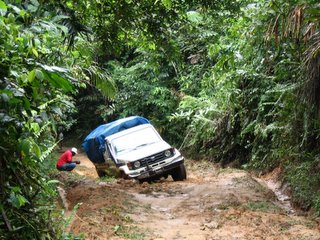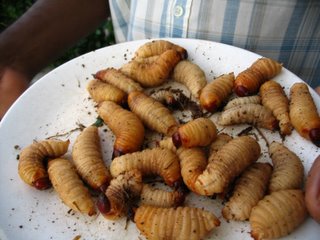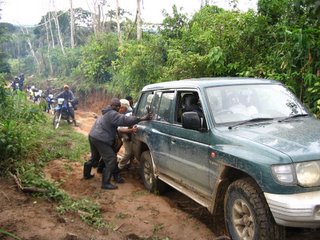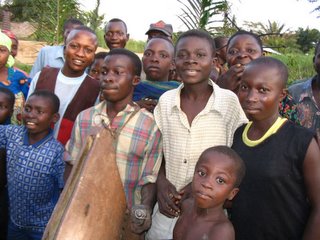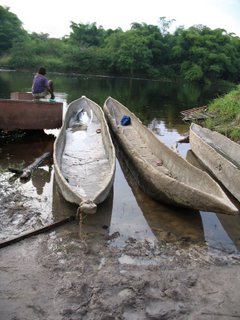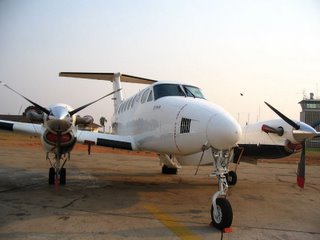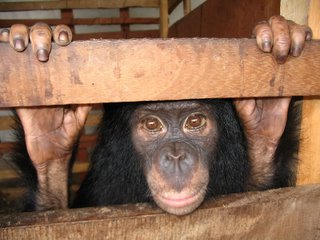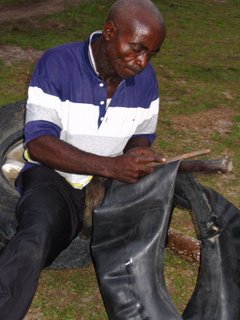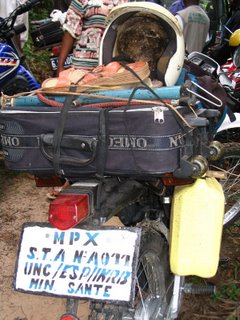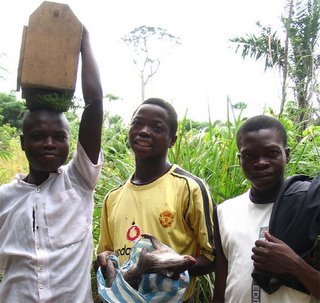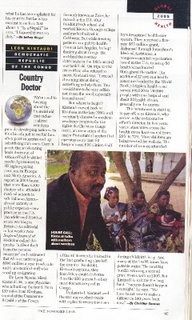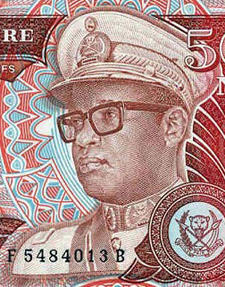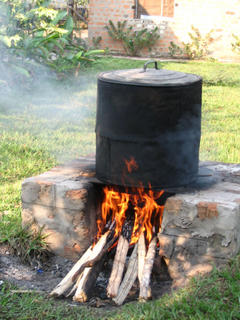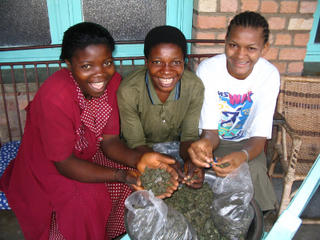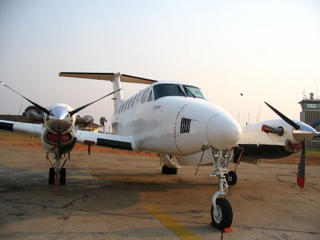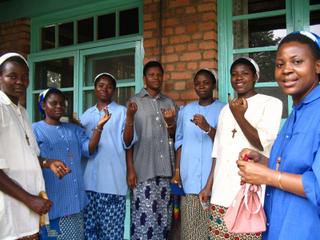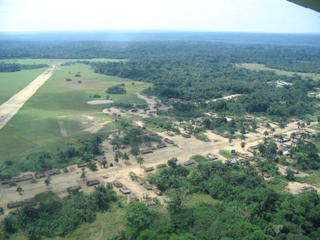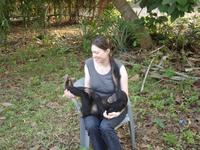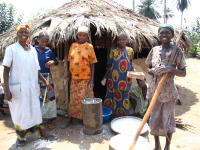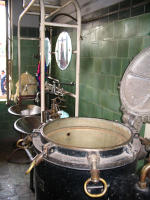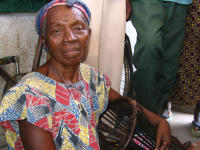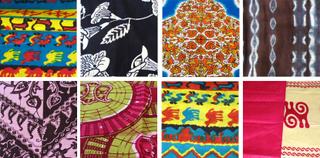Being a bit of a feminist in a country that has a very strict set of rules for men and women, I wanted to share this great article about the new election of a female president in Liberia and its meaning for Congolese women.
*************
By HELENE COOPER
You can't get to Bukavu, Congo , from Monrovia , Liberia . Like just about everywhere else in Africa , the two places are separated by dense rain forests, interminable wars and impassable dirt roads that don't go anywhere.
Yet they might as well be the same place. "Oh, finally, now I'm home," I thought as I crawled out of the tiny single-engine plane and jumped onto the landing strip of what passes for Bukavu's airport. It was about six months ago, and I was on a reporting trip throughout Africa . It was a weird trip for me because I was there to write about poverty and development, yet everywhere I went, from Accra , Ghana , to Mekele, Ethiopia and Kisumu, Kenya, I kept thinking that none of those places, for all of their endemic poverty or corruption, seemed as bad off as my own home country, Liberia.
Until, that is, I got to Bukavu
(in the D.R.Congo). After the semidesert of Ethiopia and the savannahs of Kenya, Bukavu was otherworldly lush, with that tropical just-rained smell that often greets me when I go home to Liberia . Leafy, green mountains and valleys surrounded the teeming city, with rich banana trees and tea plantations dotting the countryside: the same luxuriant, verdant landscape we have around Monrovia .
And the same inexplicable sense of abandonment that comes from having a population ravaged by years of pointless civil wars. Thousands upon thousands of young boys troll fetid, trash-strewn streets, with nowhere to go. Downtown buildings, long devoid of any commerce, are marked with holes from rockets, grenades and the various other projectiles common to all of the continent's numerous wars. A few private cars - mufflers dragging, crammed with 10, 15, even 20 people - travel the crater-filled streets, but mostly just the white United Nations S.U.V.'s.
What struck me most, though, in Bukavu were the women. As I drove into the city, I passed women I have known all of my life. There were old women - old in Africa means 35 or so - with huge bundles of bamboo sticks on their back. In most cases, the burdens were larger than the backs carrying them as they trudged up one hill after another. There were market women in their colorful dresses - in Liberia we would call them lapas - huddled together on the side of the road selling oranges, hard-boiled eggs and nuts.
There were young women and girls, sitting in front of village huts bathing their sons, daughters, brothers and sisters in rubber buckets. No electricity or running water was anywhere close, but one 10-year old girl had dragged a bucket of dirty creek water up the hill to her house so she could wash her 4-year-old sister.
These were the women I grew up with in Liberia , the women all across Africa - the worst place there is to be a woman - who somehow manage to carry that entire continent on their backs.
In Liberia, when their sons were kidnapped and drugged to fight for rebel factions, and when their husbands came home from brothels and infected them with H.I.V., and when government soldiers invaded their houses and raped them in front of their teenage sons, these were the women who picked themselves up and kept going. They kept selling fish, cassava and kola nuts so they could feed their families. They gave birth to the children of their rapists in the forests and carried the children on their backs as they balanced jugs of water on their heads.
These are the women who went to the polls in Liberia last week. They ignored the threats of the young men who vowed more war if their chosen presidential candidate, a former soccer player named George Weah, didn't win. "No Weah, no peace," the boys yelled, chanting in the streets and around the polling stations.
The women in Liberia, by and large, ignored those boys and made Ellen Johnson-Sirleaf, a 67-year-old grandmother, the first woman elected to lead an African country. I wasn't surprised that Mr. Weah immediately said the vote had been rigged, although international observers said it had not been. In the half-century since the Europeans left Africa , its men have proved remarkably adept at self-delusion.
No one can be sure what kind of president Mrs. Johnson-Sirleaf, a Harvard-educated banker who was imprisoned by one of the many men who ran Liberia into the ground over the last few decades, will be. There are plenty of African women who have brought us shame, from Winnie Madikizela-Mandela in South Africa to Janet Museveni in Uganda . But after 25 years of war, genocide and anarchy, it's a good bet that she will smoke the men who preceded her in running the country. It's not going to be that hard to do; Mrs. Johnson-Sirleaf is following Charles Taylor and Samuel Doe, both butchers of the first degree.
Ever since the voting results started coming in a few days ago, showing what the Liberian women had done, I've been unable to get one image from Bukavu out of my mind. It is of an old woman, in her 30's. It was almost twilight when I saw her, walking up the hill out of the city as I drove in. She carried so many logs that her chest almost seemed to touch the ground, so stooped was her back. Still, she trudged on, up the hill toward her home. Her husband was walking just in front of her. He carried nothing. Nothing in his hand, nothing on his shoulder, nothing on his back. He kept looking back at her, telling her to hurry up.
I want to go back to Bukavu to find that woman, and to tell her what just happened in Liberia . I want to tell her this: Your time will come, too.
NEW YORK TIMES
November 16, 2005
Editorial Observer
**********************************
Thanks Chelsea who'd love to be in Africa, for posting on my GuestMap!
